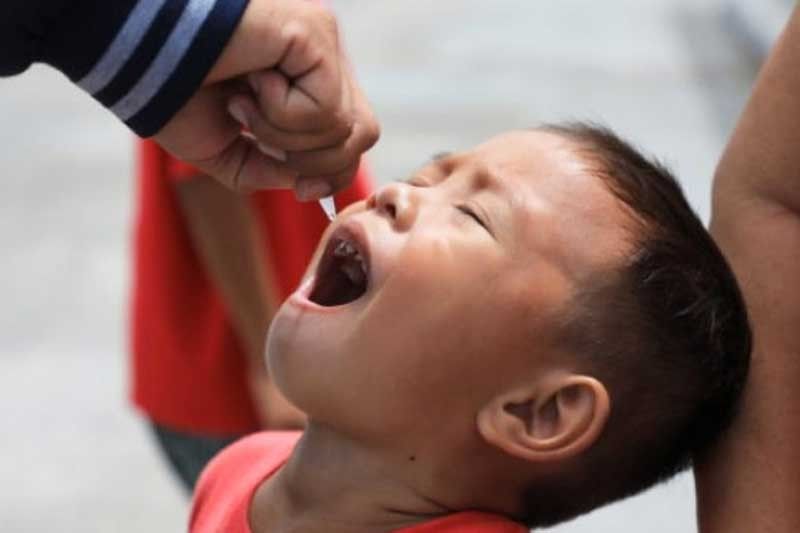Philippines regains polio-free status amidst COVID-19 pandemic

CEBU, Philippines — While the country still struggles to contain the spread of COVID-19, it nonetheless celebrated the end of the polio outbreak which affected 17 children after two years of stringent campaigns.
It was on September 19, 2019 when a polio outbreak was declared in the country after a 3-year old girl from Lanao Del Sur was confirmed to have the disease, and the virus was detected in samples taken from the sewage in Manila and waterways in Davao.
According to the Department of Health’s statement announcing the outbreak in 2019, a single confirmed polio case of vaccine-derived polio virus 2 (VDPV2) or two positive environment samples that are genetically linked isolated in two different locations is considered an epidemic in a polio-free country.
The last time the Philippines had reported cases of the crippling disease was in 1993. It was in 2000 when finally the nation was announced free of the wild poliovirus.
Polio affects mainly children and the disease can lead to paralysis, even death. It has no cure but can only be prevented through multiple doses of vaccine.
The re-emergence of the disease after 19 years, according to the World Health Organization following the epidemic, was due to the steady decline of vaccination coverage in the country over the past few years.
As a response, the DOH did a series of synchronized oral polio vaccinations which started immediately in October 2019, closely coordinating with the different local government units and other concerned national agencies.
The Global Polio Eradication Initiative (GPEI) together with its partner groups, WHO, United Nations Children’s Fund (UNICEF), and Rotary International, among others, have also supported the government in the procurement and delivery of the vaccines, development of immunization guidelines, and surveillance performance.
To strengthen the campaign of eradicating polio, a nationwide measles, rubella and polio supplemental immunization (MR-OPV SIA) activity was conducted by the health department in October 2020.
Measles is another disease, and is among the most contagious in the world. As reported, an estimated 2.4 million Filipino children below 5 years old were susceptible for measles.
Children 9-59 months old were administered measles-rubella vaccine. Oral polio vaccines were given to 0-59 months old.
There were two phases conducted for MR-OPV SIA. The first phase started on October 26 to November 25, 2020 in Mindanao Regions, Cordillera Administrative Region, Ilocos Region, Cagayan Valley Region, MIMAROPA, and Bicol Region.
The last phase of the activity was conducted in February 2021 in Visayas Regions, National Capital Region, Central Luzon, and CALABARZON. It concluded on March 1, 2021.
Even with the still ongoing pandemic, health care workers especially from the different LGUs continued with the supplemental immunization activity after community quarantine restrictions were eased.
Trained in infection prevention and control and with the necessary personal protective equipment, according to the chief of the health department, health workers went house-to-house to reach even those in the far-flung areas to deliver the vaccines to the children.
On June 3, 2021 the end of the polio outbreak in the Philippines was announced.
“The decision came as the virus has not been detected in a child or in the environment in the past 16 months and is the result of the comprehensive outbreak response actions including intensified immunization and surveillance activities in affected areas of the country,” WHO and UNICEF Philippines said in a joint statement commending the country for the achievement.
DOH Undersecretary Maria Rosario Vergeire reported during the special press briefing that 87.3 percent of the targeted total population was immunized throughout the campaign. No deaths were recorded.
“This level of coverage is an outstanding accomplishment for the country in combating polio,” Vergeire said.
Meanwhile, Health Undersecretary Myrna Cabotaje said that although the country has succeeded in ending the outbreaks, this doesn’t mean the end of the campaign.
“We have triumphed over the polio outbreak but it is not the end. The challenge is to keep it that way by immunizing all our children with polio now and in the future.” — Loreine Kyra Lebumfacil, CNU Comm Intern, GMR (FREEMAN)
- Latest
























